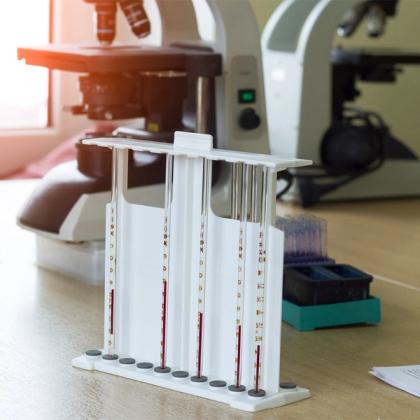This podcast episode is worth 0.23 CPD credits. Upgrade to Pro
Many pathology tests are ordered unnecessarily in primary care and this can include testing for inflammatory markers. The most common examples of tests typically ordered are those for erythrocyte sedimentation rate (ESR) and C-reactive protein (CRP) levels, with occasional requests for plasma viscosity (PV) too. Although such tests can be useful in giving some information as to a patient’s inflammatory response in certain conditions, their lack of specificity means that they are not perfect tests and interpretation is not always straightforward. In this episode, Dr Roger Henderson looks at how inflammatory markers work, what may or may not constitute a normal reading and what to do with abnormal results.
Key references
- National Institute for Health and Care Research, Applied Research Collaboration West. How useful are inflammatory marker tests in primary care? Accessed 14 December 2023.
- Watson J, et al. Br J Gen Pract. 2016;66(644):e200-6. doi: 10.3399/bjgp16X683857.
- Watson J, et al. Br J Cancer. 2019;120(11):1045-1051. doi: 10.1038/s41416-019-0458-x.
- Watson J, et al. BMJ. 2012;344:e454. doi: 10.1136/bmj.e454.
- Watson J, et al. Br J Gen Pract. 2019;69(684):e462-e469. doi: 10.3399/bjgp19X704309.
- NHS, National Pathology Programme. Digital first: clinical transformation through pathology innovation. Accessed 14 December 2023.
Key take home points
- Tests for inflammatory markers are often requested unnecessarily.
- Their use in primary care appears to be increasing.
- Normal levels of inflammatory markers are useful in ruling out some specific conditions such as polymyalgia rheumatica, giant cell arteritis, myeloma and infection of hip revisions.
- Inflammatory marker testing is often most helpful when looking to detect inflammation to confirm an already suspected disease process.
- Remember that raised levels of inflammatory markers may be found in multiple conditions, particularly infections, autoimmune conditions and certain cancers. In such cases, this can increase diagnostic confidence, but more information should be obtained to fully confirm a diagnosis.
- Inflammatory markers are too non-specific to be a useful tool for diagnosing serious underlying disease alone and so should rarely be used in this situation.
- If there is an unexpected or incidental finding of raised levels of inflammatory markers where history and examination do not suggest a cause, it is reasonable to wait and see if symptoms develop.
- If levels are markedly raised (such as an ESR >100 mm/h), the likelihood of disease is much higher than with a lower reading, but history, examination and focused investigations are still required to establish a diagnosis.
- Testing multiple inflammatory markers simultaneously does not increase the ability to rule out disease and should generally be avoided.
- ESR is considered the least specific inflammatory marker.
- CRP testing has marginally superior diagnostic accuracy for infections and is equivalent for autoimmune conditions and cancers, so should generally be the first-line test.
- CRP levels typically rise earlier in the course of an infection than other inflammatory markers.
- CRP levels also tend not to elevate significantly with viral infections, connective tissue disease or leukaemia.
- PV testing is often a more reliable marker than ESR as it is not affected by age or sex. However, it may be impacted by obesity and not all local laboratories may offer it as a service.
Create an account to add page annotations
Annotations allow you to add information to this page that would be handy to have on hand during a consultation. E.g. a website or number. This information will always show when you visit this page.
